The world is spiraling toward a 'wartime economy.' Here's what experts say that will look like for America in 2020.
The coronavirus outbreak has killed at least 9,700 people and infected more than 235,000 people worldwide. The US has confirmed more than 9,000 cases and 165 deaths.
Battling the coronavirus pandemic will be like a "war," according to leaders ranging from US President Donald Trump to German Chancellor Angela Merkel to French President Emmanuel Macron.
As the spread of the virus plunges the global economy into recession, governments worldwide are pledging billions to mitigate the fallout — and the US is no exception. But they'll need something more like a "wartime economy" to fight the pandemic and the recession at the same time.
During World War II, the US government mobilized major industry for all the various needs of the war effort, with Ford making tanks, for example. This time around, Ford might make ventilators for US hospitals.
Bill Gates has been warning for years that the next pandemic was imminent. In 2018, he said "The world needs to prepare for pandemics in the same serious way it prepares for war."
The coronavirus outbreak has killed at least 9,700 people and infected more than 235,000 people worldwide. There have been 165 deaths and more than 9,000 confirmed cases in the US.
As the pandemic worsened, more and more political leaders began using "wartime" language in 2020, at first French President Emmanuel Macron and leading Democratic Presidential candidate Joe Biden, and later US President Donald Trump and German Chancellor Angela Merkel.
But what is a "wartime economy?" And what would that look like for fighting a virus outbreak instead of a military conflict, in the United States of 2020? The past offers some clues, and so do the needs that wartime mobilization of the modern economy would (seek to) address.
Keep reading for a look at how the American "wartime economy" of yesteryear is taking hold in 2020.
Many are touting the arrival of a "wartime economy" amid the coronavirus outbreak, including leading Democratic presidential candidate Joe Biden.
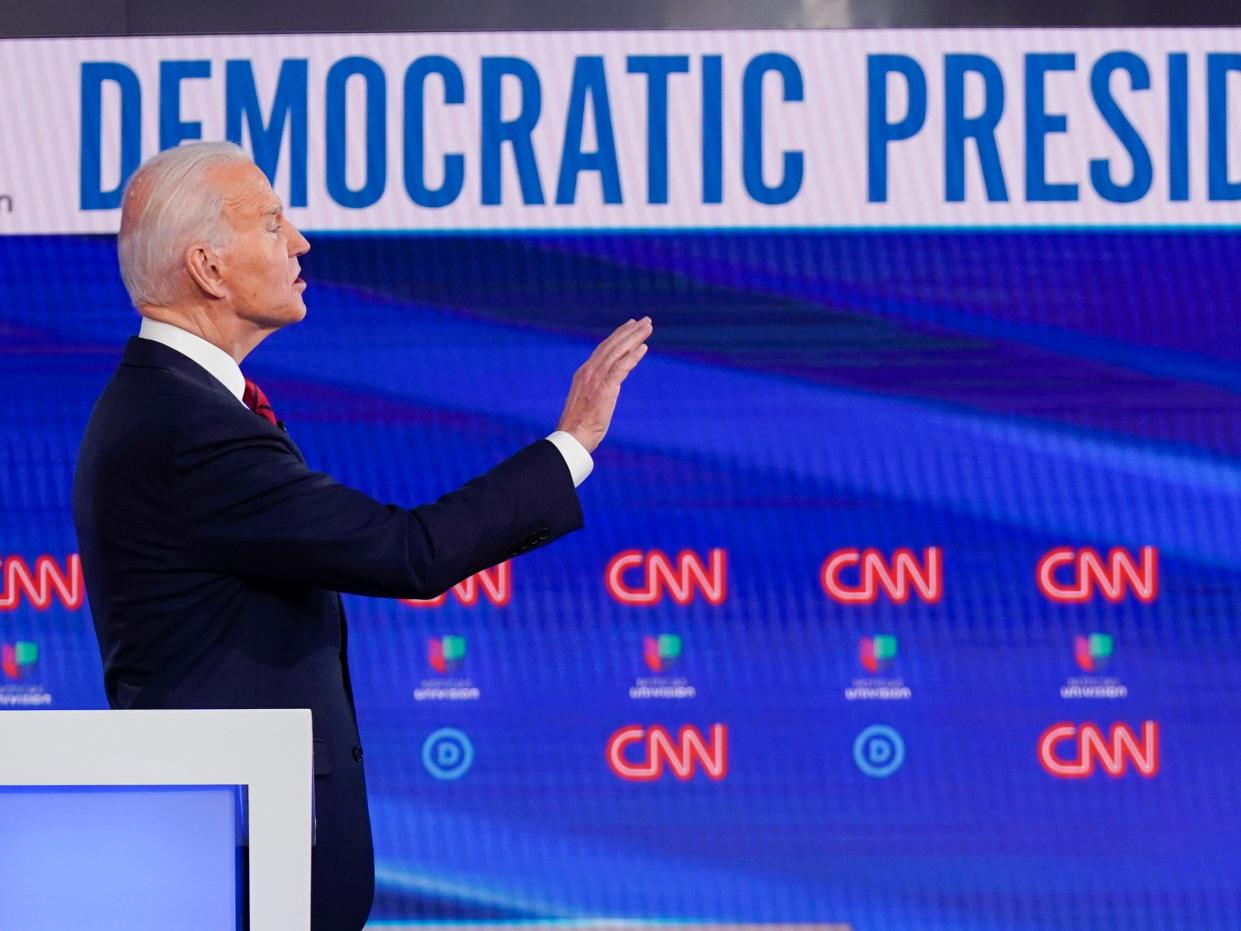
AP Photo/Evan Vucci
In the March 15 Democratic presidential debate in Washington DC, the current frontrunner, former Vice President Joe Biden, referred to the coronavirus outbreak as a "national emergency" and said "we're at war with the virus."
The statement started to echo around the world. The next night, French President Emmanuel Macron said "we are at war" six separate times in a nationally televised speech.
In the same speech, Macron announced that the French state would provide child care for health workers, and would repurpose military hospitals for civilian use, and he called on retired medical professionals and medical students to help. He also pledged €300 billion ($320 billion) to bolster the French economy, saying "no firm will go bankrupt."
A few days after Macron's speech, US President Donald Trump adopted the same description, referring to himself as a "wartime president."
Amid the coronavirus outbreak, all bets are off with American business, like during wartime.
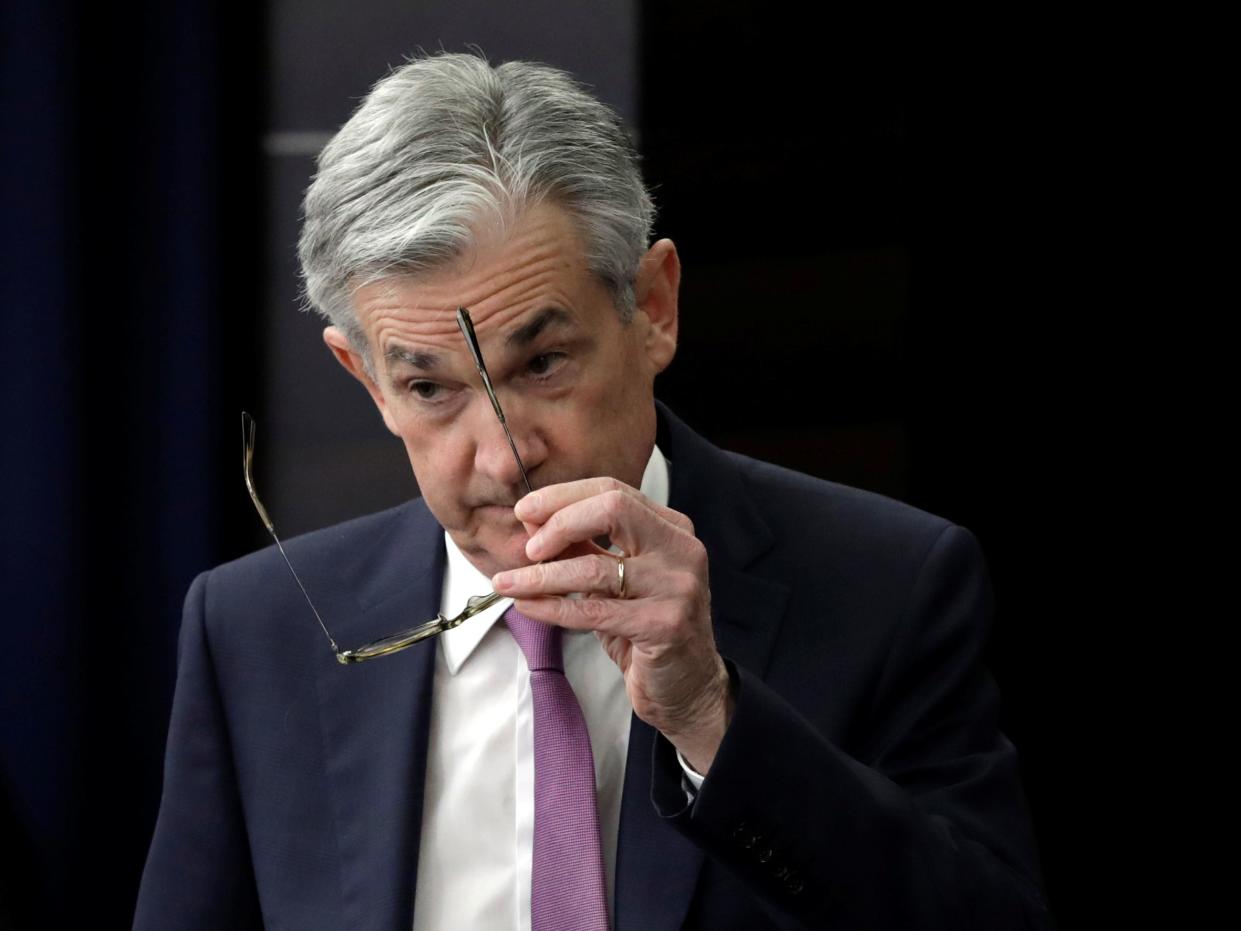
Yuri Gripas/Reuters
As the coronavirus pandemic spreads and the US economy tilts toward a recession, the US is taking actions similar to a nation preparing to fight a massive war.
The Federal Reserve slashed interests rates to nearly zero on Sunday, hoping to stimulate the economy, but the Dow has largely continued to slide. The number of coronavirus-related layoffs has sparked an unprecedented surge in unemployment claims.
The Fed also did something unusual on Sunday. Once a quarter, it typically spells out its expectations for everything from unemployment to interest rates in something called the Summary of Economic Projections. But that's not happening this time. In an emergency press conference Sunday, Fed Chairman Jerome Powell said the economic outlook "really is depending heavily on the spread of the virus, and the measures taken to affect it, and how long that goes on. And that's just not something that's knowable."
Those willing to forecast, like Deutsche Bank, say the coronavirus pandemic will usher in the worst global recession since at least World War II. New York investment banks including Goldman Sachs, JP Morgan and Morgan Stanley are all suddenly forecasting economic contractions, if not a recession, for an economic swoon that largely began weeks ago.
Corporations have thrown up their hands on forecasting. Hilton, American Airlines, Ford, and FedEx are some of the firms that withdrew their earnings estimates for 2020, meaning no one knows the extent to which the coronavirus pandemic will ravage the economy.
In World War II, governments created economic support packages and asked private industries to support the war effort.

AP Images
During World War II, the White House set the tone for the whole economy. It established what resources needed to be produced and then tasked private companies with providing them.
This resulted in companies like Ford fulfilling government orders for 300,000 vehicles, including tanks, for use during the war.
The government also raised taxes and borrowed bonds specifically to support the war effort. The Fed even bought bonds issued by the Treasury to finance economic support packages. The process, known as "monetization," has been used by governments for various purposes for many years, in recent times during the 2007-2009 financial crisis. Monetization has led to hyperinflation at its worst, but that is not the main concern right now, when social unrest is a concern from millions being suddenly thrown out of work, as reported by The New Yorker.
The US is slowly turning to the strategy of asking private industry for specific support — a major issue with today's pandemic is the need for medical equipment.
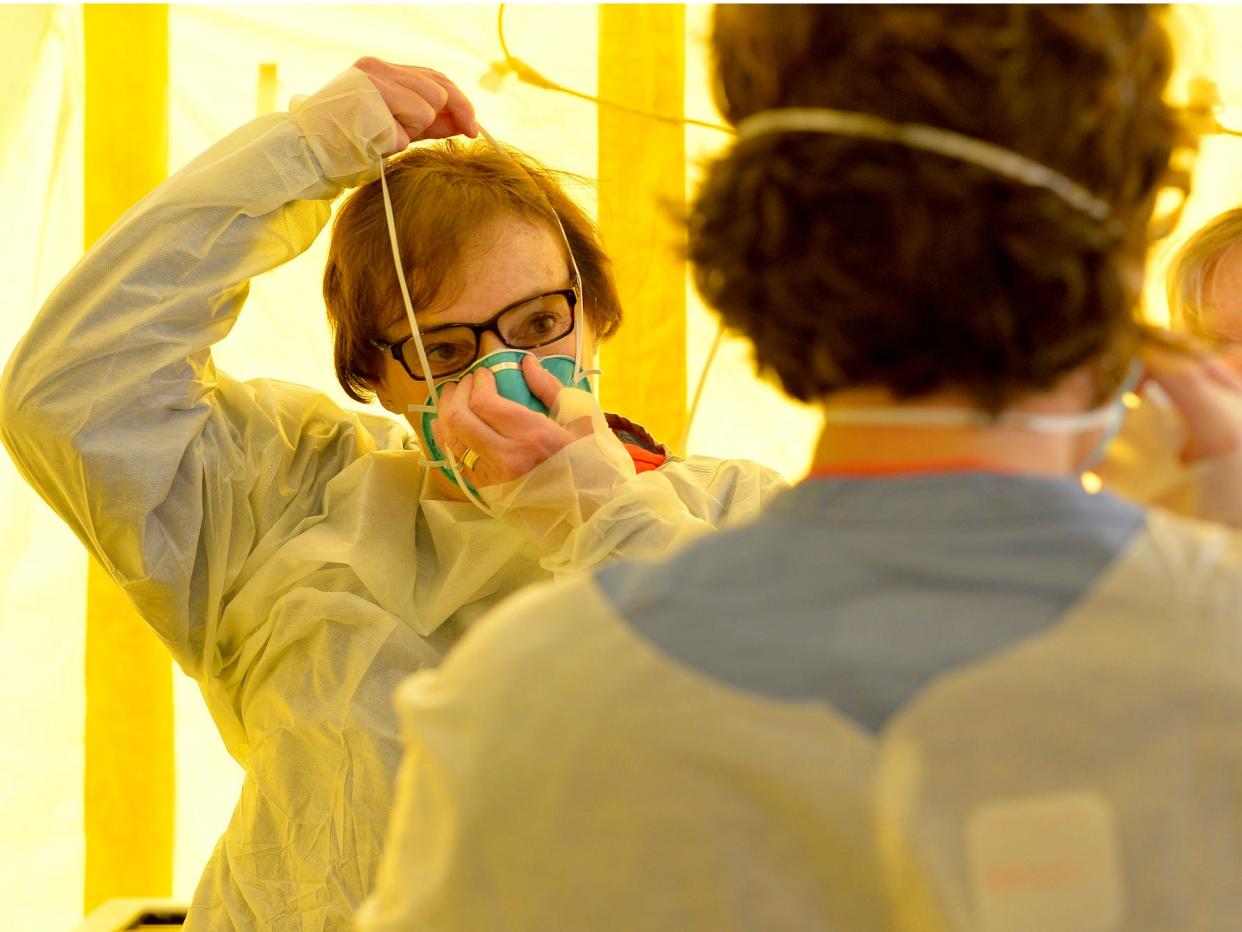
JOSEPH PREZIOSO / Contributor/Getty Images
On Wednesday, Trump announced that the US would invoke a 1950s-era law called the Defense Production Act, which will ramp up production of necessary medical equipment such as masks and ventilators.
The law was initially passed during the Korean War, and authorizes the president to take actions to "force private industry to give priority to defense and homeland security contracts" and to "ensure the availability of the nation's industrial resources to meet the national security needs of the United States," according to the Congressional Research Service.
Many products created during wartime are still with us, like the Jeep.

Roger Viollet/Getty Images
The original Jeep went into production in 1941 for military usage. It became the most commonly used four-wheeler by the US army during World War II, and went on to become a staple on American roads.
The Ray-Ban Aviator, one of the most recognizable pair of sunglasses in the world, has a similar creation story.

Saul Loeb/AFP/Getty Images
In the late 1930s, the US Army Air Corps Lieutenant General asked for a pair of sunglasses that would reduce nausea and headaches for pilots flying at high altitudes. That was the birth of the Ray-Ban Aviator, which became Joe Biden's favorite sunglasses model decades later.
A few decades earlier, "trench watches" came back with American GIs from World War I, a fashion that later became the now-ubiquitous personal wristwatch.
Today's wartime needs are different — the US is currently experiencing a severe shortage of N95 respirator masks.
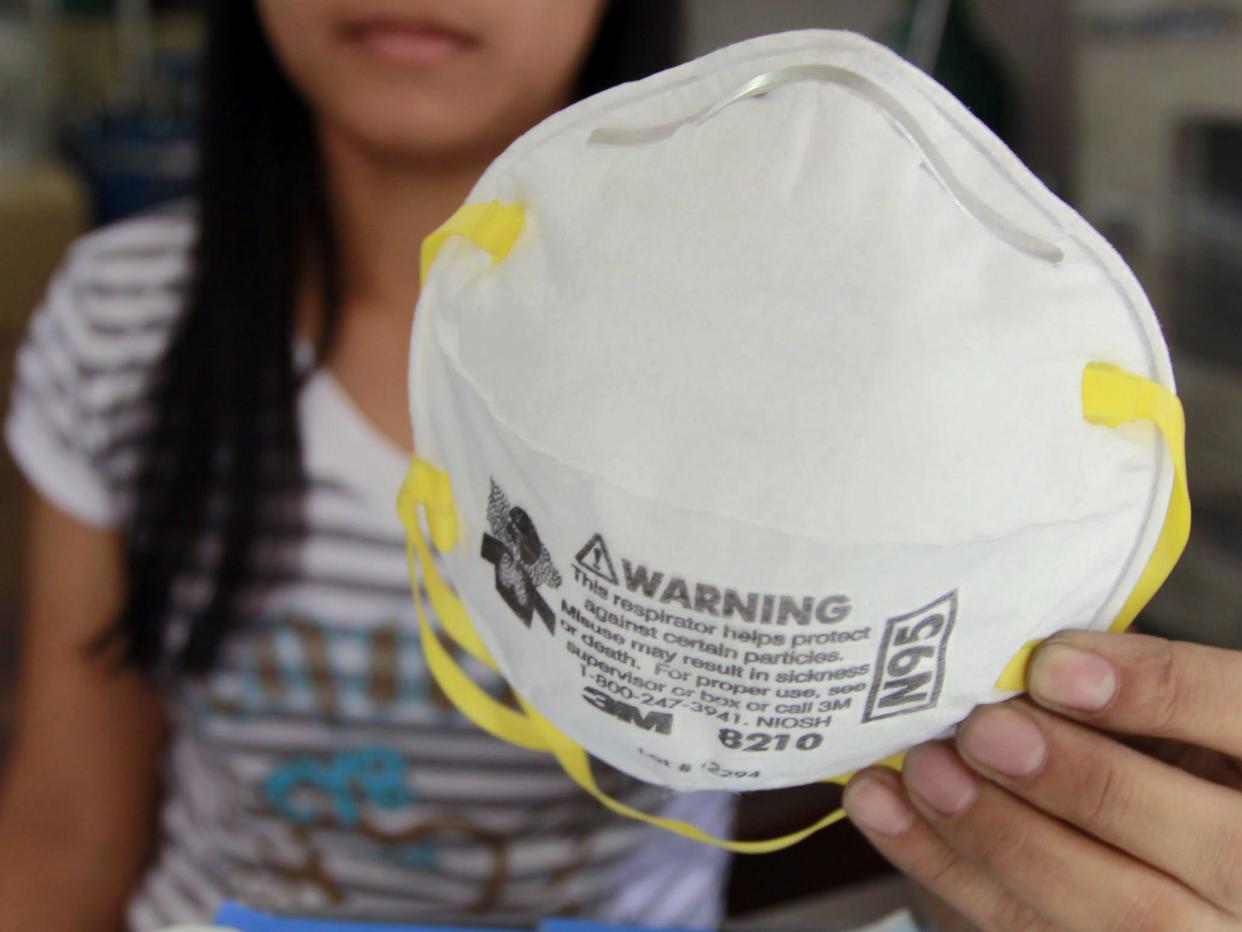
AP Photo/ Pat Roque
Doctors in at least two New York hospitals are reusing their N95 respirator masks, which are tight-fitting masks effective at filtering out airborne particles, such as those that carry the coronavirus. These doctors are rewearing masks in order to conserve their already limited supply of protective gear.
The N95 respirators are notoriously hard to make, according to NPR. Even still, one of the US' largest private mask makers, Prestige Ameritech, has increased production from 250,000 to one million masks a day, and Honeywell, another large mask maker, previously told Business Insider that it was open to coordination with the US government.
Ventilators are also in short supply — and unexpected industries could start making them.
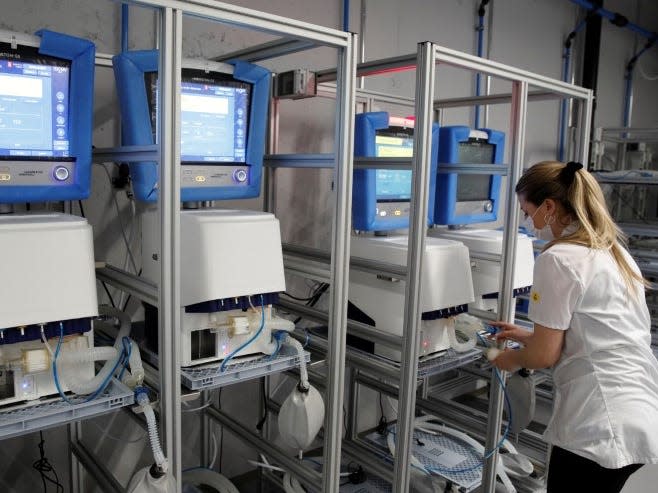
Reuters
Hospitals in the US have roughly 160,000 ventilators, the medical equipment necessary to treat the worst coronavirus cases, according to The New York Times. On March 18, when President Trump called himself a "wartime president," Vice President Mike Pence said the US has a stockpile of more than 10,000 ventilators.
As the number of coronavirus cases climbs, life-saving ventilators become more and more important. General Motors and Ford are in talks with the Trump administration to begin building ventilators, even though both have closed their factories are closed until March 30. Elon Musk, the CEO of Tesla and SpaceX, also pledged to produce ventilators in case of a shortage on Twitter.
Trump's administration is also under pressure to increase coronavirus testing capacity.

AP Photo/Evan Vucci
On Thursday, Trump said the White House had "slashed red tape" to develop coronavirus vaccines "as fast as it can possibly be done."
Trump announced that health officials are working on a "self-swab" coronavirus test and that more drive-through testing operations would be se up across the country to accelerate nationwide testing.
Trump also signed a coronavirus relief bill, granting free coronavirus testing and expanding unemployment insurance and sick days for a number of American workers. This specific bill is set to cost roughly $104 billion, and is not the only impending monetary relief.
There could also be a massive stimulus package on the horizon.

Associated Press/Evan Vucci
On Tuesday, Treasury Secretary Steven Mnuchin said the Trump administration wants to send direct cash payments to Americans as part of an economic stimulus package that could total $1 trillion.
The package also includes a $50 billion bailout for the airline industry and $500 billion to assist small businesses. The intervention is meant to stabilize the US economy as unemployment climbs as a result of mass layoffs, as communities practice social distancing to try to prevent a rapid spread of the virus.
Senate Republicans are close to agreeing on the deal, and will then negotiate with the Senate Democrats.
Read the original article on Business Insider
